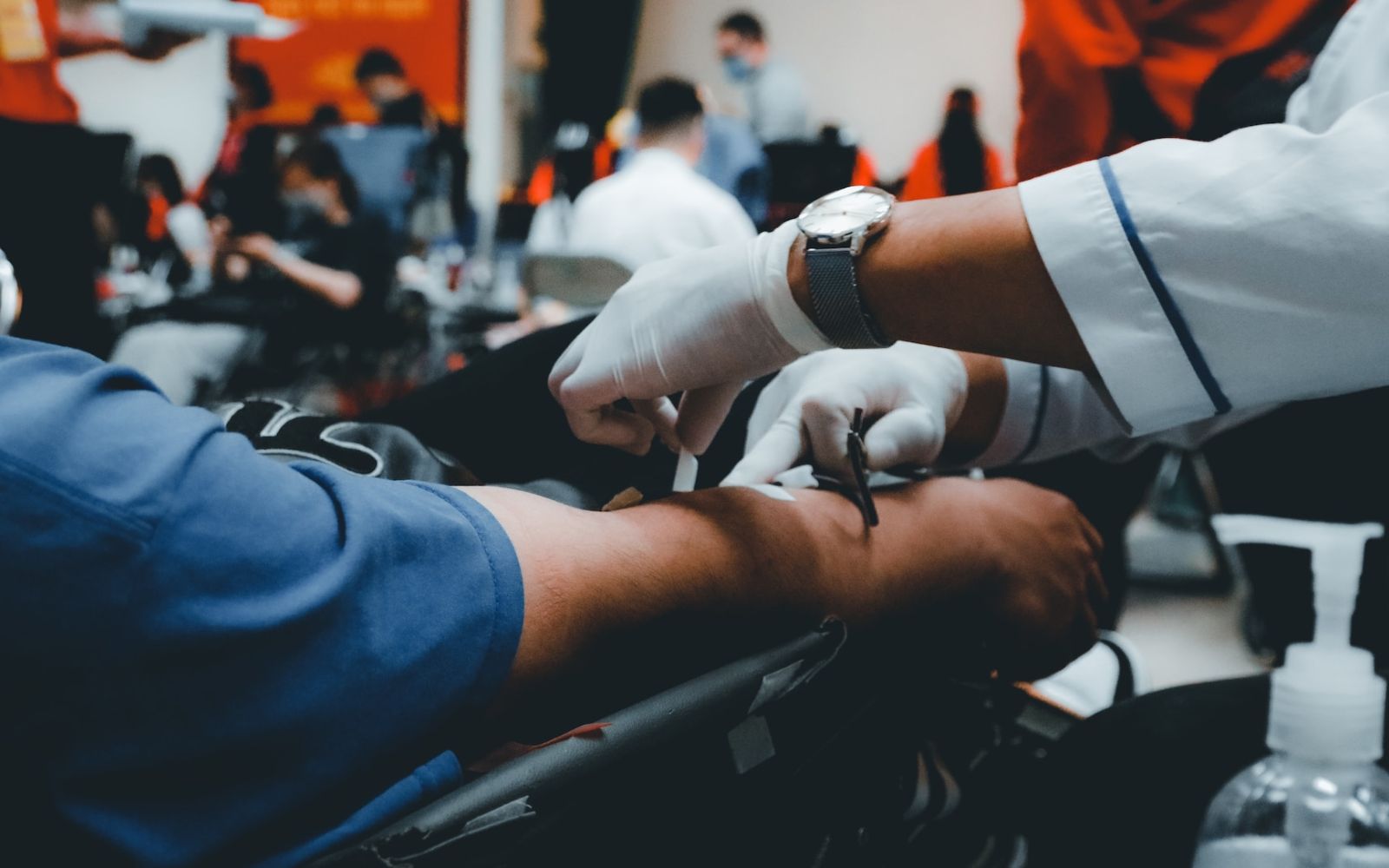Make a difference. Donate blood.
January is National Blood Donor Month. Your donation could help save a life.

Every two seconds someone in the United States needs blood from a donor. This blood may be used to help replace blood lost during surgery or from injury. Donated blood may also be used to treat cancer, anemia, support babies born prematurely and those with other blood disorders. There is a constant need for blood. And, a single donation, can be used to help save more than one life.
There is no substitute for blood and blood types can be more or less common in certain racial and ethnic groups. Therefore, it is important for people from diverse backgrounds to donate. A large, diverse pool of blood donors gives all patients access to the blood they need, when they need it.
The donation process.
The typical donation process for whole blood includes four steps and should take less than 60 minutes.
- Registration: When you arrive at the donation center, you will register, show your ID and be provided some information about donating and how your contribution may be used to help others.
- Health check: Similar to going to the doctor, you will be asked to fill out a questionnaire. It will include questions about your lifestyle, health history and recent travel. Someone will then check your temperature, blood pressure, pulse and hemoglobin. Hemoglobin is a protein in your body that contains iron and carries oxygen. The hemoglobin test is typically done with a finger stick to obtain a single drop of blood. The purpose of the health check is to determine whether you are eligible to donate blood.
- The donation: This is a simple process that takes about 15 minutes. A trained professional will assist you through the actual donation process. This includes making certain you are comfortable, your arm is cleaned and sterilized, and that you are properly bandaged once the donation is complete. Most people feel little to no discomfort. The only time you may feel a little discomfort is when the needle is inserted into your arm.
- Recovery: Following your donation, someone from the donation center will observe you to make certain you are okay. You will also be provided a light snack and drink. You should be able to return to most of your usual activities within a few hours.
In addition to giving whole blood, some people may choose to donate red blood cells only, platelets or plasma. These different types of donations have different uses.
- Whole blood is frequently used for people with life-threatening injuries or undergoing surgery.
- Red blood cells are typically given to people with blood disorders or babies born too early and need to increase their red blood cells.
- Platelets are often used to treat cancer and given to patients who have open-heart surgery or organ transplants.
- Plasma transfusions are used for patients with liver failure, bad infections or serious burns.
Donate once. Donate often.
Because there is a constant need for blood, people who are able to donate are encouraged to donate on a regular basis. The minimum time between donations depends on the type of donation you choose. These guidelines allow your body to fully recover between donations:
- Whole blood donation: 56 days
- Red blood cell donation: 112 days
- Platelet donation: 7 days
- Plasma donation: 28 days
Ready to donate?
The American Red Cross has several locations in Tennessee that can help you make a donation or answer any questions you have about becoming a donor. Call 800-733-2767 or click a link below to learn more:
- Nashville Red Cross Blood, Platelet and Plasma Donation Center
- Murfreesboro Red Cross Blood and Platelet Donation Center
- American Red Cross of Tennessee River (Clarksville)
- Brentwood Red Cross Blood and Platelet Donation Center
This information is not intended to be a substitute for professional medical advice. You should talk with your primary care physician or other qualified medical professionals regarding diagnosis and treatment of a health condition.
Sources:
- cdc.gov, “Get Involved: Donate Blood. Save Lives.”, Centers for Disease Control and Prevention, June 15, 2021
- hhs.gov, “Giving = Living”, U.S. Department of Health and Human Services, December 2023



